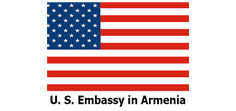On August 13, 2018, the Court of Appeals released the second president of Armenia Robert Kocharyan, abolishing the decision of the Court of First Instance.
The same day, the Special Investigative Service published a statement claiming that the Court’s decision was illegal.
“The decision of the Criminal Court of Appeal of the Republic of Armenia is illegal; the Criminal Court of Appeal has acted beyond the scope of its power. We hope the prosecutor’s office will make an appeal”, announced the press service of the Special Investigation Service.
Shortly afterwards, the interview of Alexander Azaryan, the judge who had released the second president from detention, was disseminated in the press, in which Azaryan was referring to the statement made by the SIS, qualifying it as “illiterate.”
In an interview with another website, the judge spoke in more detail about the constraints he had in the case , as well as his statements made during the court hearing.
It is noteworthy that by giving an interview and making such statements, Alexander Azaryan violated the decision of the General Assembly of the Judges of the Republic of Armenia on establishing Judicial Code of Conduct, in particular:
Rule 14: “… The judge is not authorized to make public statements or comment on cases and acts in the media in matters related to the merits of cases in the court proceedings or the expected ones. The judge shall apply to the Media Relations Service of the Judicial Department of the Republic of Armenia requesting to make a statement, comment, or other means of presentation in the media. ”
Moreover, in accordance with Article 69 of the Judicial Code, when performing any activity and in all circumstances the judge shall: … 7) Abstain from publicly expressing an opinion on any case examined or anticipated in any court, except in the cases when the judge acts as a party to the case or legal representative of the party.
These laws and rules of conduct are strictly obligatory for judges. Violation of them stipulates disciplinary liability prescribed by Article 142 of the Judicial Code.
Rafael Afrikyan

 FACTOMETER
FACTOMETER









